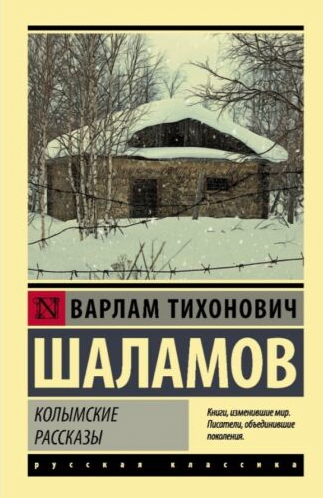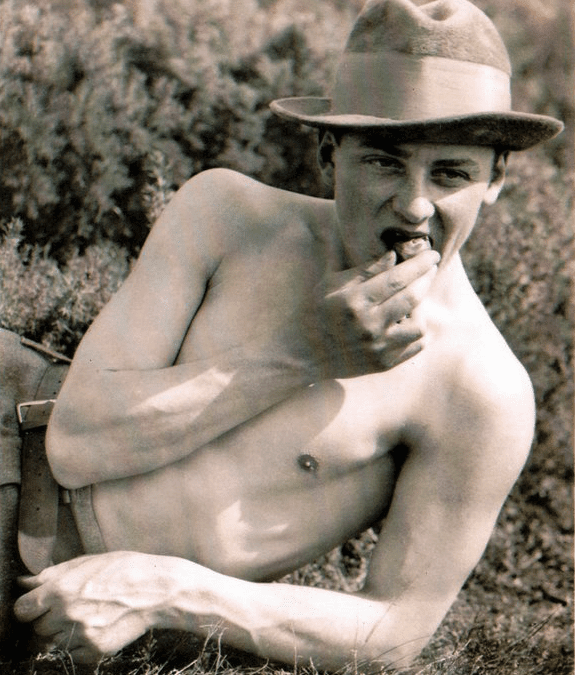KOLYMA STORIES
Translated and introduced by Donald Rayfield,
New York: New York Review of Books, 2018, £14.99, 741 pp.
The following is a pre-edited version of a review which appeared in The Literary Review, October 2018, pp. 63-64.
This is a Gulag memoir to rival Solzhenitsyn’s, as Solzhenitsyn himself acknowledged. Between 1954 and 1973, after fifteen years spent mainly in the northeast Siberian camps of Kolyma, Varlam Shalamov (1907-82) poured out stories which – once the Khrushchevite Thaw was over – he knew might well never be published.
In 1968 Kolyma Stories was leaked to the West, and in 1980 appeared in John Glad’s English translation. The current volume and its forthcoming companion will more than double the amount of Shalamov’s work available in English, in Donald Rayfield’s clear, idiomatic and sound translation (though no translator’s English could render the roughness of блатной жаргон[criminal slang]). Anglophones can now catch up with Russian children, who have studied Shalamov’s stories since they were released under perestroikain 1988. Russian Vergangenheitsbewältigung(coming to terms with the past) may still have a way to go, but this inclusion on the national curriculum indicates that the process has at least begun.
The Russian for story, рассказ, contains сказать, to tell; Shalamov is tellingus what happened. His stories are fictional in that he knows what characters other than the first person narrator are thinking; on one occasion the narrative follows visitors once they have left the camp; the stories are artistically shaped. But what is being shaped, we implicitly believe, are memories. Like Tennyson’s memoir of mourning, In Memoriam, which was written over a similar period, the stories don’t appear in the order of composition. Unlike In Memoriam, no narrative chronology structures the volume. The brief introduction unfortunately doesn’t make this clear, but one assumes that both the stories’ ordering, and the recording of their dates, are authorial. The effect is to disorientate. The reader has no more power to predict where and when the next story is going to take them than the prisoners had power to determine their fates. Characters come and go; Shalamov, and we, might or might not ever see them again. There is no grand narrative; history is not happening; one reads as Shalamov lived, from one episode to the next. Few episodes are longer than ten pages; one is never at home in them. Yet the scale is huge: the country, the freezing temperatures, the prison sentences, the book itself.
The first story, ‘Trampling the Snow’ (‘По снегу’, more accurately ‘Through the Snow’), throws us into virgin snow, and an explanation of how one tramps it down. But gradually, Crusoe-like, and like the prisoners, we get to know our way around a little. We find out how to cook, and how to disinfect clothes. We learn that conditions vary between the concentration-camp-style discipline of being shot for speaking, and possibilities for considerable sociability. The ‘mainland’ (материк, meaning the Soviet Union outside the Gulag) is a foreign country, where things are done differently; the Gulag retains the decimal system of counting days long after the rest of the country has abandoned it. When the narrator is released: ‘even though my travel documents were only valid as far as Jambul in Kazakhstan, I realised that Kolyma laws probably did not apply in the mainland’; he successfully returns to Moscow and his waiting wife instead. He reflects that some of the camps’ free workers refuse to return because they would be ‘worthless trash’ on the mainland, but are big fish in the camps. ‘The war’, when it is happening, feels literally and otherwise distant: an observation such as ‘The war was now in its second year’ will be casually dropped into a story, apparently a propos of nothing at all. Prisoners or guards arriving from the front line are, astonishingly, perceived as soft: ‘Party workers and the military are the first to fall apart and do so most easily’. A novice paramedic was ‘too much a frontline soldier […] shattered by the sight of the prisoners and their terrible injuries, such as he had never witnessed or dreamed of in his life’. One wonders whether, even or especially had he seen the Nazi camps, he would not have felt a particular devastation at seeing such camps at home.
(On the other hand, the Gulag inmates might have had a rather higher chance of survival, in the first years of the war at least)
Many of the stories, with Chekhovian matter-of-factness, merely relate the horrors (though not the very worst; torture, called ‘interrogation’, takes place off the narrative stage). But in others Shalamov takes the leisure to reflect. In younger days he used to say to himself ‘Well, we’re not going to starve to death […] And at the age of thirty I found myself in the situation of a man really starving to death, literally fighting over a piece of bread. And all that was before the war.’ His main conclusion is that: ‘Nobody can get anything useful or necessary out of the camps, neither prisoner nor chief, neither the guards nor the casual witnesses, such as engineers, geologists, and doctors, neither the bosses nor their subordinates’. The volume’s introduction reproduces Shalamov’s 1961 list of 45 points ‘What I Saw and Understood in the Camps’: ‘Point 15. I realized that one can live on anger. 16. I realized that one can live on indifference.’ Morality is reinvented: ‘there are three commandments for prisoners: don’t trust, don’t be afraid, don’t ask’; ‘knowing how to steal is the main virtue in the north’; physical strength, since it serves the State, is considered moral, therefore a man too weak to carry a log is called a ‘fascist’; ‘We considered ourselves to be almost saintly, thinking that we must have expiated all our sins by the years spent in the camps.’ The trivial alternation of good and bad luck saves many from suicide: ‘We understood that even the worst sort of life is made up of alternating joy and grief, good luck and bad, and there was no point feeling that the bad luck would outweigh the good’; people survive longer than horses mainly because they ‘clung to life more than any other animal’. By contrast, he admires the dwarf pines and other local trees their capacity for survival. Shalamov tries to cripple himself by making a rock fall onto his leg to break it, but at the last moment instinctively jerks his leg back: ‘So I realised that I was no more suited to self-harm than to suicide […] All I could do now was wait for small disasters to alternate with small successes, until the big disaster ran its course.’
Most interesting are Shalamov’s observations on the categories of people most likely to survive. High up are the ‘gangsters’ – organised and powerful common criminals, who hold the camp administration to some extent to ransom. In the story ‘The Red Cross’, which I thought might be about a visit to the camp by that organisation, it is described how the gangsters kill by cross-shaped knife slashes those doctors who do not succomb to their threats and give them unwarranted relief from work, or periods in the sanatorium: ‘if the doctor had been bribed, that was bad, very bad. But if he had been intimidated, that could be excused, since the criminals’ threats were by no means empty.’ In describing the gangsters Shalamov for once becomes moralistic: ‘The bosses [officers and guards] were coarse and cruel, the propagandist was a liar, the doctor had no conscience, but all that was trivial compared to the power of the criminal world to deprave others. The bosses, propagandist, and doctor were still human and there were very occasionally glimpses of something human in them. But the criminals were not human. Their influence on camp life knew no bounds and was ubiquitous.’ Another category that does well are former torturers. One story concerns an imprisoned former NKVD show-trial interrogator: ‘The indiscriminate nature of his soul, which derived from his work as an interrogator, was also a preparation, a peculiar shock absorber for that fall into Kolyma, where Fleming never discovered any abyss, for he had known about it before, which is why he was saved’.
Perhaps surprisingly, the strongest of all are the religious. Point 7 of his 45 points is: ‘I saw that the only group of people able to preserve a minimum of humanity in conditions of starvation and abuse were the religious believers, the sectarians (almost all of them), and most priests.’ One story recounts how a bishop, stranded in an exiles’ village with two Zionists, two anarchists and two Socialist Revolutionaries, converts them all in two years. ‘The Cross’ describes the declining years and enduring faith of his father, who had been a missionary priest, as uncompromising as his son. Though Shalamov was a Socialist Revolutionary, sharply aware of the horrific tsarist camps which preceded the Soviet ones, no pacifist, and an atheist, he clearly respects the faith of those who have it.
His final words, concluding the narration of his return to Moscow, are ‘I had come back from hell’. They are ambiguous. Hell on earth exists. But he is out of it. Even though Shalamov would end his days in a psychiatric institution in conditions of Gulag-like vileness, he in the meantime knew some joy, which contradicts the generalisation in one of the stories: ‘The intellectual becomes a permanently scared creature. His spirit is broken. Even when he gets back to life and freedom, he will still have this intimidated and broken spirit.’ On the train back from exile he feels ‘the constant happiness of freedom’, even as his bunk is vomited on by a drunk lieutenant. And he manages to remember. He had been much concerned by forgetting; in one story he asserts that the former frontline officer who replaces him as a paramedic will after seventeen years remember the names of many of the prisoners and of his colleagues, but not the greatest horror he saw: ‘the steamship KIM and its three thousand frostbitten prisoners’. In this Shalamov likens him to the Pontius Pilate of Anatole France’s 1902 short story ‘The Procurator of Judea’, in which Pilate, in comfortable retirement, can remember many details of his service in Palestine, but nothing whatever about Jesus.On Shalamov’s train journey from Irkutsk to Moscow, ‘I was frightened by that terrible human strength, the desire and ability to forget…When I realised this, I mastered myself. I knew that I wouldn’t let my memory wipe out all that I had seen’. He didn’t, so we have this book. Like Shalamov, we are grateful for small mercies.




